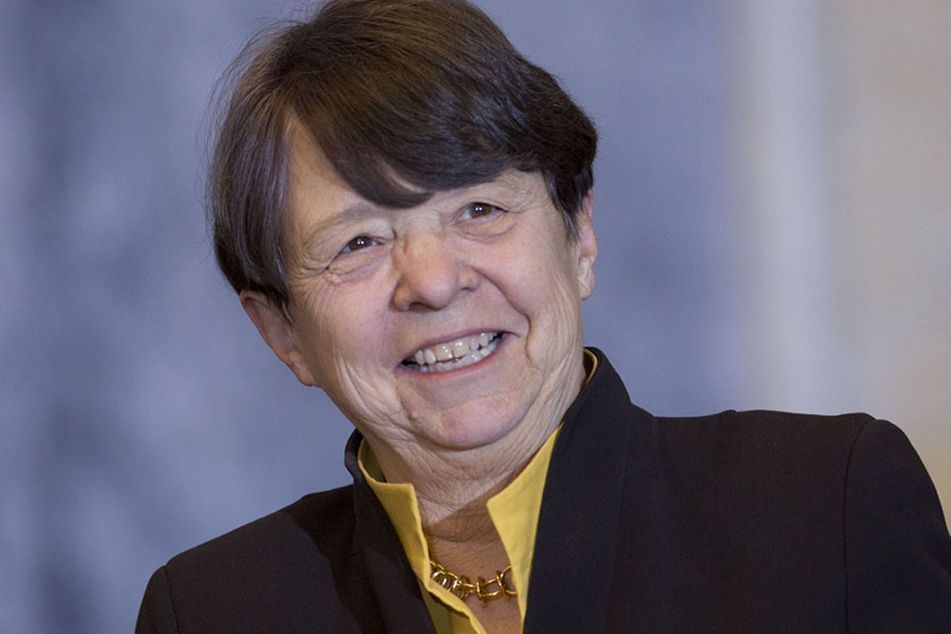GOP senators to SEC Chief Mary Jo White: No more money needed to examine more advisers
 SEC chief Mary Jo White
SEC chief Mary Jo White
Lawmakers argue that agency hasn't justified a 15% increase for 2016
Republican senators on Tuesday pushed Securities and Exchange Commission Chairman Mary Jo White to do more with the agency’s current budget, which they say has received significant recent increases, instead of asking for more funding to strengthen investment adviser oversight.
Ms. White defended the SEC’s $1.72 billion budget request for fiscal 2016, a 15% increase from current levels, in front of the Senate Appropriations Subcommittee on Financial Services and General Government. She said that a funding priority is to hire hundreds of more investment adviser examiners to increase the agency’s 10% annual examination rate.
The chairman of the subcommittee, Sen. John Boozman, R-Ark., suggested that the SEC should do more with its recent funding increases.
He noted that the agency received $150 million, or an 11% increase, in an omnibus fiscal 2015 spending package approved late last year. He said the Commodity Futures Exchange Commission, whose chairman Timothy Massad also appeared at the hearing, had also received a boost.
“These increases are more generous than those provided to any other agencies in the bill,” Mr. Boozman said. “Unfortunately, access to more funding does not necessarily ensure that an agency successfully achieves its mission or spends that money responsibly.”
Mr. Boozman also said that the SEC had carried over $74 million from fiscal 2014 to augment its current budget.
Ms. White said that it’s not possible to project how much unspent money it will have when fiscal 2015 ends on Oct. 1. She defended the practice for giving the SEC a cushion when it hires new staffers.
“It makes for smart financial management and better hiring and spending,” Ms. White said.
Over the last few years, the agency budget has increased from about $1.2 billion to the current $1.5 billion.
HIGHER PRIORITIES
Skip Schweiss, managing director of adviser advocacy at TD Ameritrade Institutional, said that the SEC could step up adviser exams without the help of Congress.
“With the amount of funding they’re getting, they could be examining more advisers every year, if they choose to do so,” Mr. Schweiss said in an interview. “My perception is that they have higher priorities.”
Despite the SEC’s relative prosperity compared to other federal agencies, Ms. White argued that more funding for the agency is necessary to boost adviser exams.
She said that since fiscal 2001, SEC-registered investment advisers’ assets under management have grown to $62 trillion from $17.5 trillion. Over the last decade, the number of SEC examiners per $1 trillion in AUM has dropped to seven from 20. About 11,500 investment advisers are registered at the SEC. The 10% annual examination rate covers about 25% to 30% of AUM.
“This is a real investor protection issue of great concern,” Ms. White said.
Investment adviser coverage “raises the entire bar of compliance,” Ms. White said. “It translates directly into investor protection or the lack thereof.”
Among small investment advisers, “any massive fraud can be occurring there, and we’re not present,” Ms. White said. “You’re lowering investor protection. It’s quite, quite serious.”
In a recent speech at a Securities Industry and Financial Markets Association conference, Ms. White said that SEC should consider authorizing third-party investment-adviser exams to increase coverage of the sector. Adviser groups have resisted that idea, preferring that the SEC maintain full control of all aspects of oversight.
Learn more about reprints and licensing for this article.








